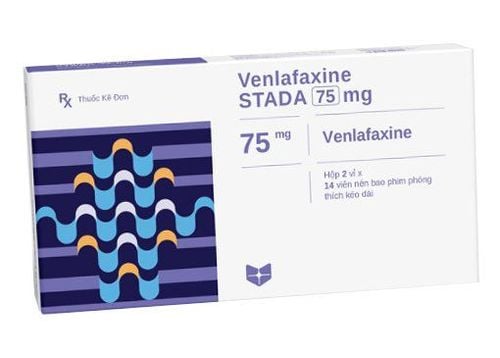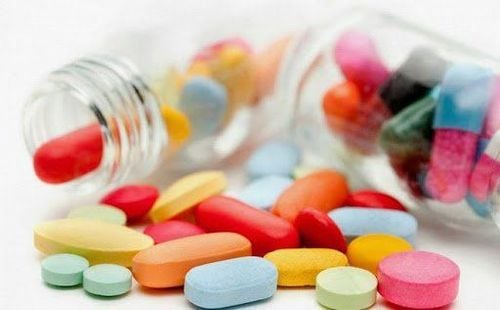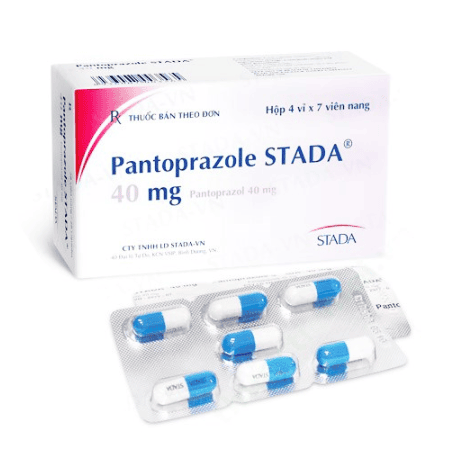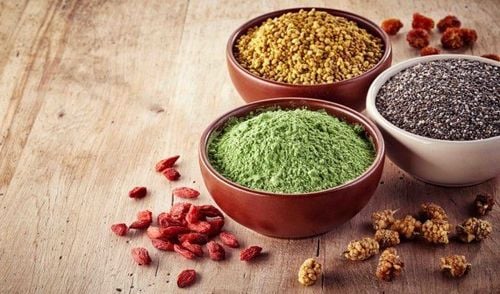This is an automatically translated article.
The article was professionally consulted by Specialist Doctor I Dong Xuan Ha - Gastroenterologist - Department of Medical Examination and Internal Medicine - Vinmec Ha Long International Hospital.Digestive disorders, bloating, heartburn, nausea, constipation or diarrhea that occur frequently will affect your life. Making changes to your diet and lifestyle helps keep your digestive system healthy.
1. Do not use canned food
More refined carbohydrates, saturated fats and additives contained in canned foods have been linked to an increased risk of digestive disorders.
Food additives, including glucose, salt and other chemicals, have been shown to contribute to increased intestinal inflammation. Trans fats found in processed foods not only have negative effects on heart health, but also lead to ulcerative colitis. Bottled drinks often contain artificial sweeteners (xylitol), which are thought to increase the number of harmful bacteria in the gut. This also becomes the cause of bloating, diarrhea and other digestive problems. In contrast, a diet with fresh, clean and nutrient-rich foods will protect you against digestive disorders. Limiting the use of canned and processed foods is the optimal way to ensure digestive health.
Trắc nghiệm: Làm thế nào để bảo vệ lá gan khỏe mạnh?
Làm test trắc nghiệm kiểm tra hiểu biết về gan có thể giúp bạn nhận thức rõ vai trò quan trọng của gan, từ đó có các biện pháp bảo vệ gan để phòng ngừa bệnh tật.2. Add more fiber
Fiber is very beneficial for the digestive system. The three common types of fiber are: soluble, insoluble, and prebiotic.
Soluble fiber: Helps absorb water into stools, making them softer, thereby effectively preventing constipation. Soluble fiber is found in oat bran, legumes, and seeds. Insoluble fiber: Acts like a giant brush, helping to clean the intestines, removing any waste and residue present in the digestive tract. Vegetables, grains, and wheat bran are reliable sources of insoluble fiber. Prebiotic: A form of fiber that feeds beneficial bacteria, keeping the gut healthy. Similarly, prebiotics are present in many fruits, vegetables, and whole grains. A regular fiber-rich diet has been shown to promote bowel movements and reduce the risk of digestive problems, including: ulcers, reflux, hemorrhoids or appendicitis.

Chế độ ăn lý tưởng cho hệ tiêu hóa bao gồm nhiều chất xơ, chất béo lành mạnh, chất dinh dưỡng và chất lỏng.
3. Don't forget to add healthy fats
Healthy fats both feel easier to digest after a meal and improve the absorption of certain fat-soluble nutrients. Besides, omega-3 fatty acids can reduce the risk of bowel diseases and digestive disorders. Foods high in beneficial omega-3 fatty acids include flaxseeds, chia seeds, and especially walnuts, as well as fatty fish like salmon, mackerel, and sardines.
4. Provide the necessary amount of water
Dehydration is a common cause of constipation. Experts recommend drinking 1.5-2 liters of water per day to prevent this condition. In hot weather conditions or for people who do exercise - sports, it is necessary to add more water than that.
In addition to water, you can also keep your body hydrated with herbal teas and other caffeine-free beverages.
Another way to meet the required water content is to eat succulent fruits and vegetables, such as cucumbers, zucchini, celery, tomatoes, strawberries, grapefruit and peaches.
5. Keep your mind at ease
The gut and brain are thought to be intricately linked, meaning that whatever goes on in the brain negatively affects the gut. When under stress, the body releases hormones that cause blood and energy to move out of the digestive system. Stress is thought to be linked to health problems such as stomach ulcers, diarrhea, constipation, and irritable bowel syndrome.
Stress management, yoga or meditation has been shown to both relax the mind, clear the mind, and improve symptoms in people with irritable bowel syndrome and other disorders. Digest .
6. Concentrate while eating
If you don't pay attention to your meals, it's easy to eat too much and too quickly, which can lead to bloating or indigestion.
Studies have shown that chewing slowly and enjoying meals can reduce symptoms in people with ulcerative colitis and irritable bowel syndrome.
Don't forget to turn off the TV and put away your phones and mobile devices while eating to help prevent common digestive problems like indigestion and bloating.
7. Eat slowly, chew well
In fact, digestion begins in the mouth. The longer you chew, the more saliva is produced. Saliva helps to partially digest food in the mouth and becomes a liquid that helps to mix food in the stomach before moving smoothly into the small intestine.
While careless chewing has been linked to reduced absorption of nutrients, conversely, chewing food thoroughly will help prevent symptoms like indigestion and heartburn. What's more, the slow act of chewing has even been shown to help relieve stress, and this also has the potential to protect the digestive system.
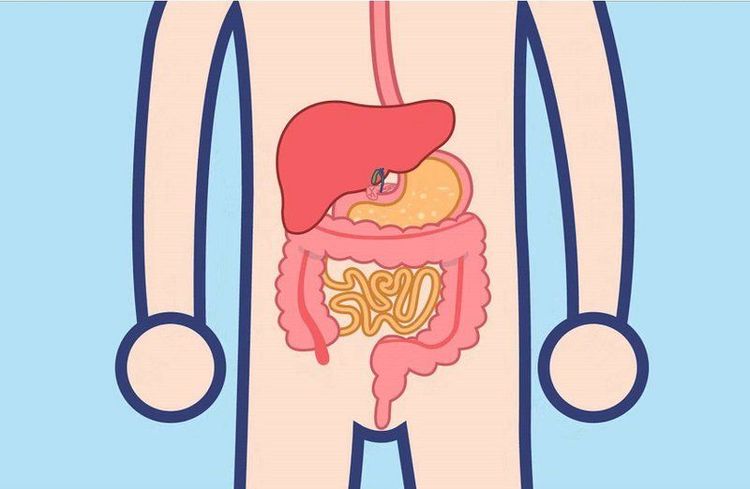
Cần có thời gian và trọng lực để thức ăn tiêu hóa và di chuyển xuống ruột.
8. Be physically active
Regular exercise is one of the best ways to strengthen the digestive system. Taking a gentle walk after a meal can help food move through the digestive system with ease.
Studies show that healthy people with moderate exercise, such as cycling and jogging, increase intestinal transit time by almost 30%. On the other hand, walking for 30 minutes a day significantly improves symptoms of chronic constipation. In addition, exercise also has an anti-inflammatory effect thanks to its ability to reduce inflammatory compounds in the body, thereby preventing intestinal inflammation.
9. Slow down and listen to your body
If you don't catch the body's hunger and fullness signals, you will easily overeat, then feel bloated, bloated and indigestion.
Many people believe that when the stomach is full, it takes up to 20 minutes for the brain to realize that and command you to stop eating. While science has yet to prove it, the reality is that it takes a while for the satiety or hunger hormones secreted by the stomach to reach the brain.
Therefore, taking time to eat slowly and paying attention to portion sizes is one way to prevent digestive problems like indigestion and bloating. In addition, emotional eating also has a negative impact on the digestive system. Instead of eating when you are anxious, relaxing before a meal can improve unwanted symptoms caused by digestive disorders.
10. Give up bad habits
Everyone knows that bad habits like smoking, drinking too much alcohol and eating late at night are very harmful to general health. However, the above behaviors are also responsible for some digestive problems.
Smoking: Nearly doubles the risk of acid reflux. This bad habit has also been linked to stomach ulcers, making ulcerative colitis or gastrointestinal cancer worse. Always remember that giving up smoking has many benefits.
Drinking alcohol: Alcohol causes acid in the stomach to increase production, which can lead to heartburn, reflux or stomach ulcers. Drinking too much alcohol also causes gastrointestinal bleeding, inflammatory bowel disease, and damage to beneficial gut bacteria.
Eating late: Sleeping after eating late at night will lead to heartburn and indigestion. The reason is because the body needs time to digest, as well as need gravity to pull the food eaten to move down in the right direction. When you lie down, gastric juices increase and cause heartburn or reflux symptoms. After eating, it is necessary to wait 3-4 hours to have time for food to move from the stomach to the small intestine before going to sleep.
11. Support the gut with nutrients

Men vi sinh chủng Lactobacillus và Bifidobacterium rất có lợi cho hệ tiêu hóa.
Probiotics: Is beneficial bacteria for the intestinal tract, improving indigestion, bloating, as well as symptoms of constipation and diarrhea. Probiotics are found in fermented foods like sauerkraut, kimchi, and yogurt, and come in capsule form that includes a mixture of Lactobacillus and Bifidobacterium strains.
Glutamine: An amino acid that protects gut health and has been shown to reduce intestinal permeability (leaky gut) in people with severe disease. Glutamine can be found in foods such as turkey, soybeans, eggs, and almonds. You should consult with your doctor before choosing the direct oral form of glutamine.
Zinc: A very important mineral for a healthy gut, it helps treat diarrhea, colitis, leaky gut and digestive problems. Zinc deficiency can cause digestive upset. The recommended daily intake of zinc is 8 mg for women and 11 mg for men. Foods rich in zinc include shellfish (seafood), beef, and sunflower seeds.
In summary, for people who are experiencing digestive disorders, changes to a healthy diet and lifestyle can help improve this condition. In particular, a menu with fresh foods, rich in fiber, healthy fats and nutrients is the first step to healthy digestion.
Besides, paying attention to eating slowly, chewing well, reducing stress and exercising will also bring a lot of benefits. Finally, giving up bad habits that affect digestion such as smoking, drinking too much alcohol and eating late at night will help reduce the symptoms of digestive disorders.
Article referenced source: Healthline.com





